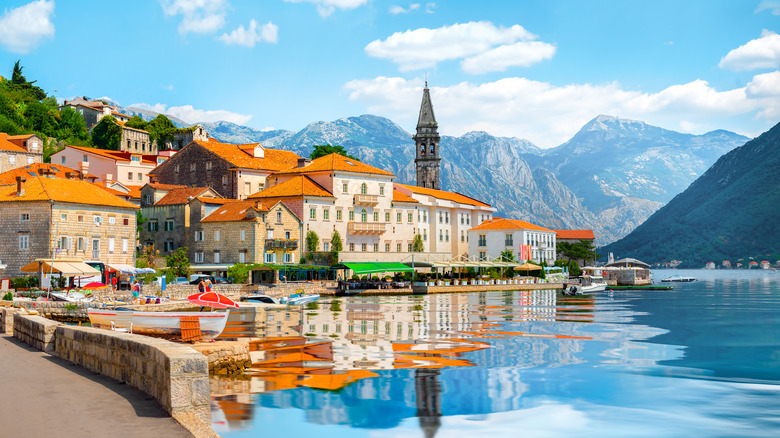The Real Reason Montenegro Has No McDonald's Locations
Montenegro is a stunning Balkan country with a complex political past like many countries. While the country's beautiful Bay of Kotor has attracted tons of attention from tourists over recent years, there's one thing that the travel boom still has not brought to the country — a McDonald's. But that doesn't mean the chain hasn't tried. McDonald's originally opened a mobile store in 2003 (via The Sun).
It was located in the bustle center of the country's capital, Podgorica, and was actually quite popular with locals while it was open throughout the three summer months of the year (via The Vienna Review). However, the McDonald's still closed and there has not been a franchise of the chain in the country since. It would seem that the government stepped in to prevent McDonald's among other international chains from becoming permanently settled there. And that's largely to potentially help smaller, local businesses and restaurants (via Love Food).
Rumors surrounding the reasons abound
The Vienna Review laid out several arguments for the rumored reasons that McDonald's was kept from opening permanent locations in Montenegro. Claims ranged from a concern for citizens' health to wanting to keep an American company at bay in 2003, which was just four years after the country was regularly bombed by NATO in 1999. However, these rumors don't exactly hold up these days given the presence of tourists, USAID's assistance in Montenegro and other junk foods that are not exactly healthy.
The most likely answer as to why the fast food chain was not allowed to stay in Montenegro some 18 years ago and has not been reintroduced since, has to do with local businesses. Though The Vienna Review speculated that some local restaurants had worked together to pay the government to block McDonald's, a major competitor, that is still just a rumor. The Montenegrin government has since issued a statement to The Daily Mail saying "no company, not even McDonald's, is 'forbidden' to do business in Montenegro." The government also refuted many of the claims made in The Vienna Review.

